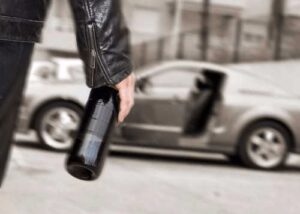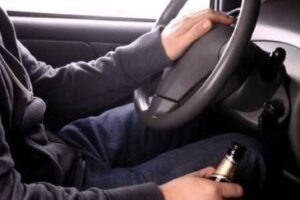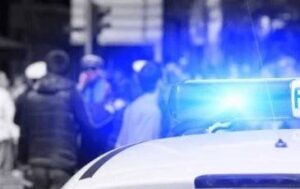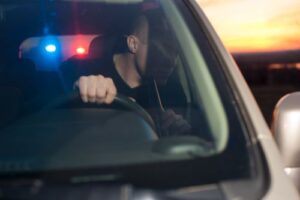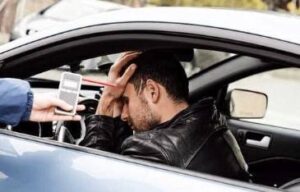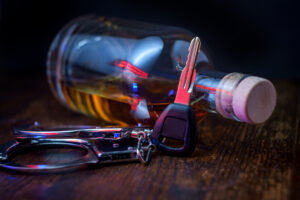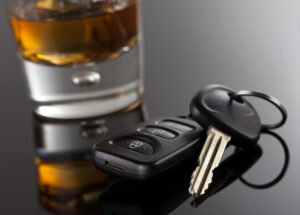Do You Need Legal Help?

"Deandra Grant Law fights hard for their clients and is always willing to go above and beyond. They are the best firm for DWI cases in DFW and beyond. Definitely hire them to represent you in any pending cases."
- P. Williams

"Deandra Grant made a tough situation so much better. She listened to my concerns and helped me so much with my case. I would recommend her to anyone needing legal services."
- M. Haley

"Deandra Grant Law handled my case with diligence and professionalism. Deandra Grant's reputation is stellar and now I know why. She has a team of individuals who provide quality service."
- N. Coulter
As Seen On





A Fighting Team On Your Side
Since 1994 when our doors opened, Deandra Grant Law has helped thousands of clients get their DWI charges reduced or dismissed. We're ready to fight on your behalf.

Managing Partner
Partner & Criminal Division Chief
Criminal Division Senior Associate
Criminal Division DWI Trial Chief
Immigration Division Chief & Criminal Division Deputy Chief
Criminal Division Associate

Texas DWI Manual
By Attorney Deandra Grant
Fighting DWI charges can present many challenges, not only for the defense, but prosecutors as well. This is why it is important to be armed with the necessary knowledge so you understand the DWI process.
Attorney Deandra M. Grant is the co-author of the Texas DWI Manual, offering legal advice to both clients and fellow attorneys. Fighting DWI charges can present may challenges, not only for the defense, but prosecutors as well. This is why it is important to be armed with the necessary knowledge so that you understand the DWI criminal process.
Learn MoreTexas Field Sobriety Test Lawyers
Successfully navigating DWI charges requires a deep understanding of the intricate factors tied to DWI arrests, field sobriety tests, breath and blood tests, and more. At Deandra Grant Law in Texas, our commitment to your defense goes beyond words. With the experience of our Texas field sobriety test lawyers at Deandra Grant Law, you have a formidable ally to fight against DWI convictions and the serious consequences that come with them.
Unveiling the Role of Field Sobriety Tests
In the realm of DWI arrests, field sobriety tests play a pivotal role in police officers’ decisions. These tests are designed to help determine if a driver lacks the normal use of mental faculties due to alcohol consumption or drug use. While many associate DWI charges with blood alcohol concentrations surpassing the legal limit of .08 percent, it’s essential to note that a driver can face criminal charges for operating a vehicle even when their blood alcohol level is within the legal range. Impairment, regardless of BAC, remains a critical factor.
Field Sobriety Tests in Texas
In Texas, law enforcement officers commonly use a standardized set of field sobriety tests (FSTs) to assess a driver’s potential impairment due to alcohol or drugs. These tests are intended to help officers make informed decisions about whether to arrest an individual for DWI (Driving While Intoxicated) based on their performance. Here are the three typical FSTs used in Texas:
- Horizontal Gaze Nystagmus (HGN) Test: In this test, an officer observes the driver’s eye movements as they track an object (such as a pen or flashlight) moving horizontally. Nystagmus, which is an involuntary jerking of the eyes, can become more pronounced when a person is intoxicated. The officer assesses the presence of nystagmus at maximum deviation, angle of onset, and lack of smooth pursuit. If certain indicators are observed, the officer may consider it as potential evidence of impairment.
- Walk and Turn Test: During this test, the driver is instructed to take nine heel-to-toe steps along a straight line, turn around, and take nine heel-to-toe steps back. The officer looks for specific clues, such as stepping off the line, using arms for balance, stopping while walking, or turning improperly. Any combination of these clues might be interpreted as impairment.
- One-Leg Stand Test: In this test, the driver is asked to raise one foot approximately six inches off the ground and count out loud by thousands (one thousand-one, one thousand-two, and so on) until instructed to stop. The officer observes for swaying, using arms for balance, hopping, or putting the foot down. These actions can be deemed as indicators of potential impairment.
It’s important to note that while these FSTs are standardized, various factors can influence an individual’s performance, including nervousness, physical condition, and even road conditions. Additionally, FSTs are subjective and may not always accurately reflect impairment. If you’ve been arrested for DWI in Texas and have concerns about your FST performance, it’s advisable to consult with our Texas field sobriety test lawyers who can analyze the circumstances and help build a strong defense strategy tailored to your case.
The Power of Knowledge and Experience
At Deandra Grant Law, we firmly believe that knowledge is the foundation of a strong defense. Texas DWI attorney Deandra M. Grant is not only well-versed in the legal nuances of DWI cases, but she is also a trusted authority who imparts her wisdom nationally. Her experience encompasses field sobriety tests, breath and blood tests, and the intricacies of DWI law. With Deandra’s guidance, you’re equipped with the insights needed to challenge the validity of field sobriety tests and build a robust defense tailored to your case.
Your Shield Against DWI Charges
DWI charges can be daunting, but you don’t have to face them alone. Deandra Grant Law is here to stand by your side, utilizing comprehensive knowledge, proven strategies, and a commitment to justice to protect your rights. If you’re grappling with DWI charges and the implications of field sobriety tests, contact us today. Together, we’ll navigate the complexities, challenge assumptions, and work tirelessly to secure a positive outcome for your case. Your future matters, and Deandra Grant Law is here to safeguard it with unparalleled expertise and dedication.
Unveiling the Truth Behind Field Sobriety Tests: The Power of Challenging
Challenging the validity of your Field Sobriety Test (FST) in Texas can be the cornerstone of your DWI defense strategy. Contrary to common belief, the activities you perform on the side of the road do not inherently determine your impairment level due to alcohol. Instead, they serve as tools for law enforcement and prosecutors to gather evidence against you. The tests themselves aren’t designed for success; rather, they are assessed through a negative scoring system, which means you receive no credit for performing them correctly. Even if you demonstrate no imbalance or impairment, you can still “fail” these tests for seemingly technical reasons. The truth is, FSTs do not accurately predict your capacity to operate a motor vehicle safely.
Understanding How Field Sobriety Tests Impact Your Case
Field sobriety tests, while commonly used by law enforcement, do not offer a precise measurement of a driver’s level of impairment. Rather, they serve as indicators that police use to assess potential impairment. If officers deem these tests suggestive of impairment, they often proceed to administer a blood alcohol concentration (BAC) test to determine the actual level of impairment.
Even if you choose not to undergo a mandatory field sobriety test at the request of a police officer in Texas, it’s crucial to know that the officer can still arrest you. Subsequently, they can conduct a blood draw to obtain a BAC measurement. Certain circumstances make this BAC measurement mandatory, including:
- Involvement in an accident resulting in physical injuries
- Involvement in an accident with fatalities
- Prior DWI convictions on your record
- Having a minor in the car when stopped by the officer
Collecting Information for the Case
As the field tests don’t yield a specific BAC measurement, the observations made by the police officer are not exact. Despite this, the prosecution can still utilize the officer’s observations as part of the case against you in a DWI trial.
When an officer requests your participation in field sobriety tests, they likely already suspect impairment. Participating in these tests adds more evidence that the prosecution can present during your trial. On the other hand, declining the tests forces the prosecution to seek alternative evidence.
It’s vital to recognize that refusing field sobriety tests has immediate consequences. While it’s your right to make this choice, understanding the potential outcomes can help you make an informed decision. If you find yourself in this situation, consulting with our skilled Texas field sobriety test lawyers can provide clarity and guidance on the right course of action for your case.
Empowering Defense with Expertise
In the realm of Texas DWI defense, Deandra Grant stands as a beacon of expertise. Having completed 24 hours of training in Standardized Field Sobriety Tests under the guidance of a NHTSA-certified (National Highway Traffic Safety Administration) instructor, Deandra’s prowess in the field is unmatched. Her dedication is further demonstrated by her completion of the NHTSA Field Sobriety Testing Instructor Course, through which she has become an educator herself, teaching fellow attorneys in the nuances of FSTs. This level of mastery allows Deandra to meticulously review officers’ reports on field sobriety tests and expertly cross-examine them in court. Through her skillful approach, she determines whether these tests were conducted properly, thus exposing any discrepancies or inaccuracies.
Empower Your Defense: Act Now
If you or someone you know is facing DWI charges, hesitation is not an option. At Deandra Grant Law, our Texas field sobriety test lawyers are devoted to safeguarding your rights and challenging the veracity of field sobriety test results. By doing so, we aim to help you achieve a positive case outcome. Don’t let uncertain results dictate your fate; let our experience guide you toward the justice you deserve. Contact us without delay. Your defense starts now.
Related Blogs
Your Path to Resolution Starts Here: Contact Deandra Grant Law
If you find yourself facing DWI charges in Texas, whether you’ve taken standardized field sobriety tests or opted not to, know that you’re not alone in this journey. Deandra Grant Law is here to be your advocate, your ally, and your source of guidance during this challenging time.
Comprehensive Support, Proven Results
Our commitment to your defense goes beyond words. With our experienced DWI attorneys by your side, you gain access to a team that understands the intricate legal landscape of DWI cases in Texas. We offer free consultations to assess your unique situation, answer your questions, and provide you with insights into potential defense strategies.
A Strategy Tailored to You
No two DWI cases are alike, which is why we approach each one with a personalized strategy. Whether you’ve taken standardized field sobriety tests or chosen not to, our goal remains unwavering: to secure a positive outcome for your case. We combine our knowledge, expertise, and dedication to guide you through the legal process with confidence.
Contact Us Today
Don’t let uncertainty overshadow your future. Take the first step toward resolving your DWI case by reaching out to Deandra Grant Law. With our support, you can navigate the complexities of the legal system, challenge the evidence against you, and pursue a positive outcome. Your peace of mind matters to us, and we are here to champion your rights and interests every step of the way. Contact us today for your free consultation. Your defense starts here.
Client Reviews
![]()
“Deandra Grant Law handled my case with diligence and professionalism. Deandra Grant’s reputation is stellar and now I know why. She has a team of individuals who provide quality service.”






